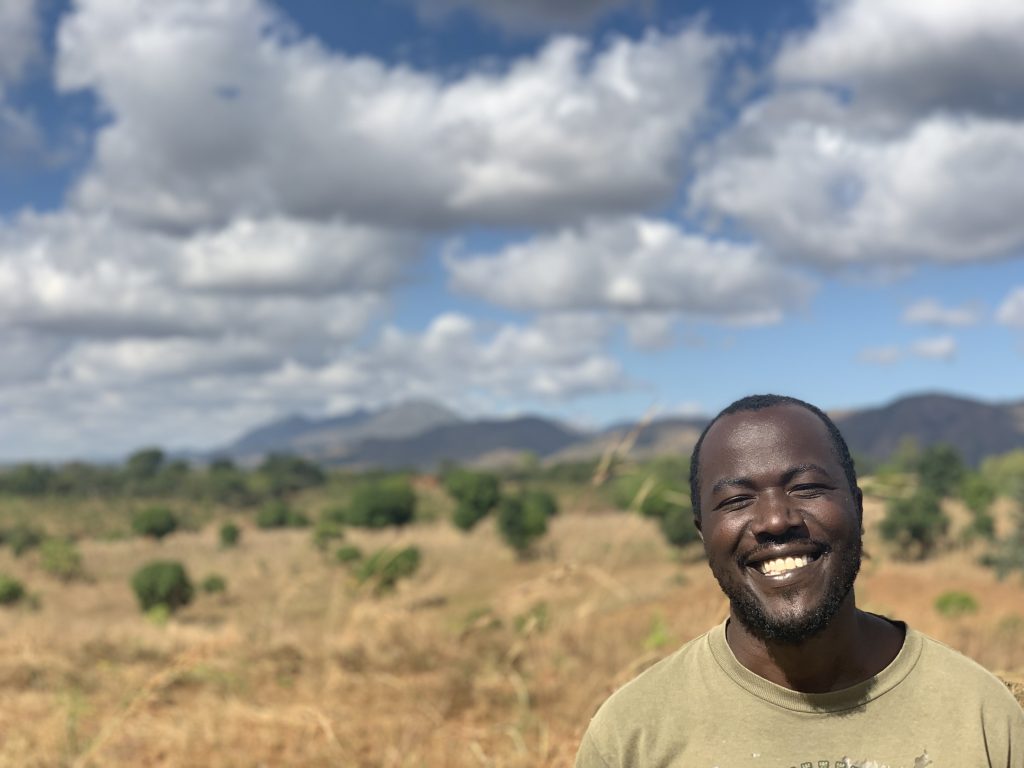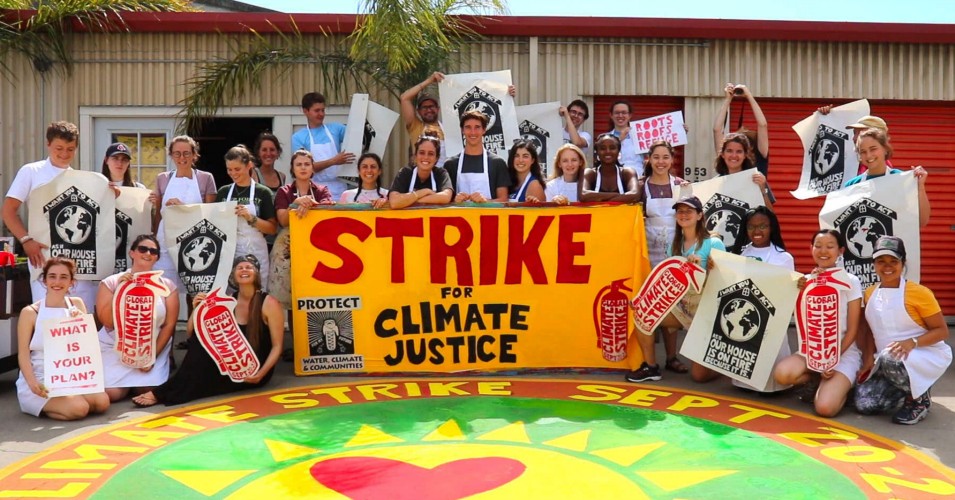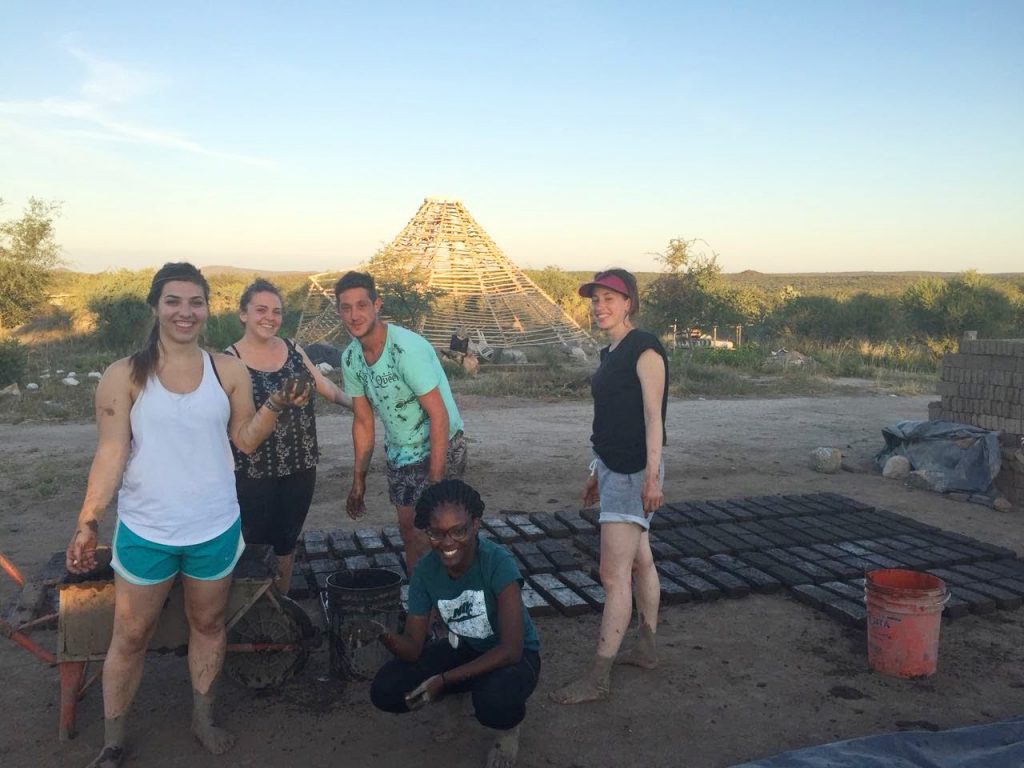Reciprocity in Action
November 17th, 2020 | SIT Study Abroad
SIT Study Abroad's International Honors Program (IHP) portfolio features thematic global comparative programs on the topics of human rights, food systems, climate change, cities, and health & community. Next year IHP will also offer a new program focused on international relations. Learn more on the SIT Study Abroad website.
Whether investigating the historical and social contexts of human rights movements with IHP Human Rights in Jordan or witnessing the advancement of social justice in urban environments with IHP Cities in Argentina, the nature of experiential learning requires that students are constantly pushed out of their comfort zones through continuously changing and challenging material, environments, and contexts. While this ‘stretching’ is built into our programs as a means toward creating positive transformative experiences, reciprocity is equally an essential part of building the trust and cohesion that underpins program work and the student experience. IHP, as with all SIT programs, operates with community engagement and mutually beneficial relationships with host communities at the heart of our work. We ask our students to come as learners, ready to question their assumptions, listen to new points of view, and engage with local perspectives and realities. Only through local understanding and human relationships can students grasp what actions could be truly reciprocal and mutually beneficial in the first place.
Everyday Reciprocity
A note from IHP staff in Cape Town, South Africa
As we highlight a few IHP reciprocity projects below, it is also worth noting how important small, everyday acts of reciprocity are to strengthening relationships in the communities who welcome us, as well as among students. Simple acts, such as students offering to make host parents their favorite food one night, or students joining in with locals to support activities in their host families’ communities, can make a positive difference for everyone involved. It makes people feel seen and cared about. An eye to everyday reciprocity is built into the programming through cohort-based learning and community-building work. Students reciprocating with other students is encouraged socially in our group norms, but also pedagogically in collaborative work. Small acts of reciprocity make the overall experience of the student group more joyful, meaningful, and transformative. The outcome is often the basis for the life-long relationships developed during every semester.
Reciprocity and Engagement
IHP Food Systems

Geoffrey Mlongoti directs operations in Malawi for the IHP Food Systems program and is the founder and manager of Zisinthe Farm and Community Garden. Through his leadership at Zisinthe, a local agroecology demonstration farm, Zisinthe has become a space of intersection, interaction, and mutual benefit for our students and the community. Our program does ongoing work with Geoffrey to organize tree planting programs, seed exchanges, research projects, and educational activities on topics such as climate change and soil health. During their month in Malawi, students learn these sustainable practices and spend time working on the farm alongside our Malawian partners. This gives them hand-on experience and also supports local farming activities that directly contribute to the food systems in place. Each semester, students share in these projects, with some returning even after their program to continue working with Zisinthe. It is the inspirational Geoffrey who brings our student community face-to-face and hand-in-hand with the local community to learn and share with one another.
IHP Climate Change

IHP Climate Change has been involved in numerous collaborations with local partners to foster reciprocity. One of our most highly publicized examples comes from Oakland, California, where students participated in a workshop on Art for Social Change with David Solnit, Arts Organizer with the Climate Justice Street Mural Project. Students learned about the central role of the arts as an educational tool when mobilizing for social change. They then had the chance to produce hundreds of screen prints, as well as a big ground mural, in preparation for upcoming school climate strikes. The experience of being in action and leaving a mural behind was transformative and students left the semester inspired to engage this work in their own cities and local spaces.
IHP Health & Community

Each semester, students on both tracks of IHP Health & Community spend time in large cities, together with nearby rural areas. Within these different spaces, reciprocity takes many forms—from students practicing English with local children as requested by parents in Lac Village outside of Hanoi, Vietnam; to IHP students in Brazil meeting with medical students at Faculdade de Ciências Médicas da Santa Casa de São Paulo University for a reciprocal exchange of knowledge among youth training to be health professionals, but in very different health systems. Alongside these ongoing reciprocal practices, staff and students have organized other kinds of reciprocity projects. During a fully immersive stay at the Peasants Movement of Santiago del Estero, located several hours of Buenos Aires, Argentina, students spent a whole week learning from, and working with, the community. Students shared the living space and participated in local community meetings addressing issues regarding the right to land, health and food sovereignty, and sustainability. In addition, students actively took part in a wide range of community projects, such as working the land, cooking in the community kitchen, and assisting with the manufacturing of mud bricks to build the community houses. In Bahraich, India, students worked with young women at a local girls’ school to help a letter-writing campaign in support of furthering their education, and the students at the girls’ school leveraged an IHP excursion as a chance to lobby for more education access. Now five of those young women hold government positions that can influence the education, health, and well-being of future generations.
With our work across all five IHP programs, we hope to demonstrate another important aspect of reciprocity: the mutual impact of learning from different communities, hearing multiple voices, respecting myriad ways of life, and valuing broad forms of knowledge. In these moments and so many more, our students are able to engage in tangible acts of reciprocity with our host communities that bring to life the connection between theory and practice.
